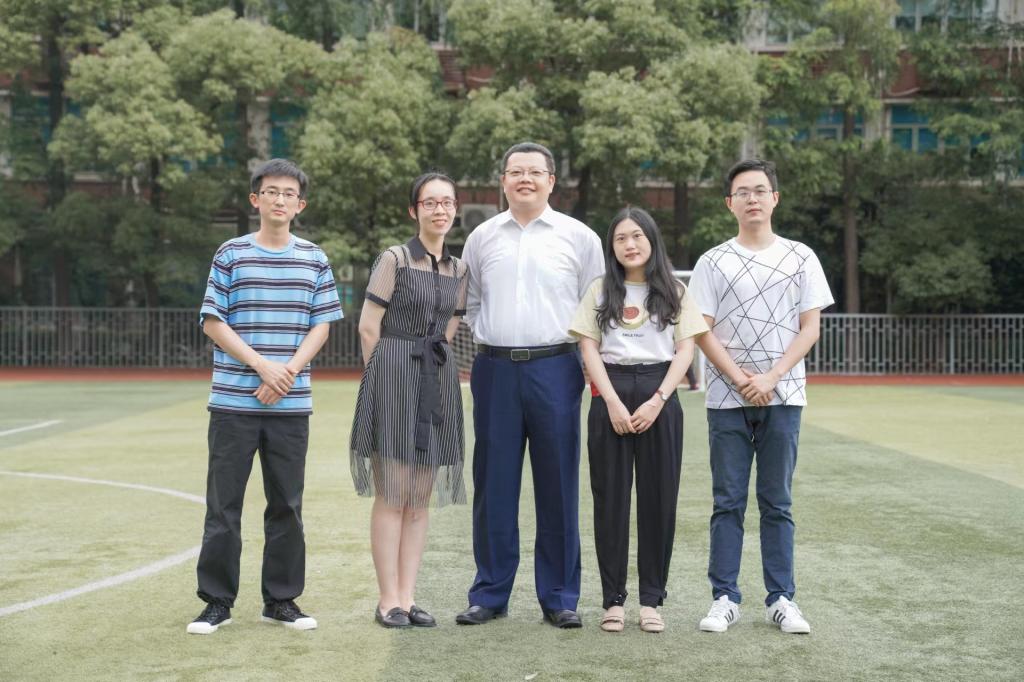Laboratory of Autophagy and Necrosis in Human Diseases

Lab Leader: Qing Zhong
Lab Name: Laboratory of Autophagy and Necrosis in Human Diseases
Lab Info:Qing Zhong’s lab has long been devoted to the study of biochemical regulation of autophagy in mammalian cells. Autophagy is a process by which cells process and recycle their components through lysosomes. Autophagy is essential for maintenance of cellular homeostasis and its dysfunction has been linked to major human diseases, including cancer, neurodegeneration, and immune diseases. Zhong’s group is specifically interested in dissecting the biochemical mechanisms of autophagy, including lipid modification, lipid transfer, autophagic membrane elongation, tethering, fusion, and membrane integrity sensing and repair. Zhong’s group has made many achievements in this field. The group has elaborated on formation of autophagosomes (PNAS 2008, 2010, 2011), recognition of autophagic substrates (Nature 2013), and fusion of autophagosomes with lysosomes (Mol Cell 2012, Nature 2015, JCB 2022). Understanding these key regulatory steps in autophagy will allow us to develop new therapeutic tools for human diseases. Furthermore, Zhong’s group is also interested in dissecting the biochemical mechanism and physiological functions of emerging necrotic cell death pathways, and their interconnection with autophagy.
Lab Members:
Name |
Title |
|
Qing Zhong |
Professor |
qingzhong@shsmu.edu.cn |
Zaiming Tang |
Associate professor |
zaimingtang2017@shsmu.edu.cn |
Xiaoxia Liu |
Associate professor |
xxliu@shsmu.edu.cn |
Wan Fu |
Assisstant professor |
fuwan1121@163.com |
Shen Zhang |
Assisstant professor |
vetzhangshen@163.com |
Yi Pan |
Experimentalist |
lele1239@sina.com |
Hanyan Luo |
Assistant experimentalist |
yukil8607@shsmu.edu.cn |
Peng Li |
Postdoc |
hubeilipeng@163.com |
Linsen Li |
Postdoc |
llscau@163.com |
Fang Chen |
Postdoc |
sky8cf@163.com |
Xiuzhi Li |
Postdoc |
lixiuzhi@sjtu.edu.cn |
Yan Su |
Postdoc |
2227506358@qq.com |
Zili Zhang |
Graduate student |
macondo170zh@163.com |
Xing Wang |
Graduate student |
wxing_2016@163.com |
Mindan Tong |
Graduate student |
tmindan@163.com |
Yuhui Qiao |
Graduate student |
yh. qiao19@sjtu.edu.cn |
Xiaoxiao zou |
Graduate student |
xiaoxiaozou9@163.com |
Hong Zhou |
Graduate student |
18783201535@163.com |
Chaoyi Li |
Graduate student |
lichaoyi6@foxmail.com |
Yuhui Fu |
Graduate student |
fuyuhui@sjtu.edu.cn |
Junjie Ye |
Graduate student |
1372176571@qq.com |
Hanmo Chen |
Graduate student |
chenhanmo524@163.com |
Xiaomin Zhang |
Graduate student |
15534082674@163.com |
Jianghuang Wang |
Graduate student |
wangjh65@sjtu.edu.cn |
Zhenhua Zhu |
Graduate student |
237262415@qq.com |
Denghao Zheng |
Graduate student |
homerzheng@sjtu.edu.cn |
Bin Wei |
Graduate student |
weibin9768@126.com |
Qian Yang |
Graduate student |
1026744415@qq.com |
Huiying Huang |
Graduate student |
huanghuiying97@163.com |
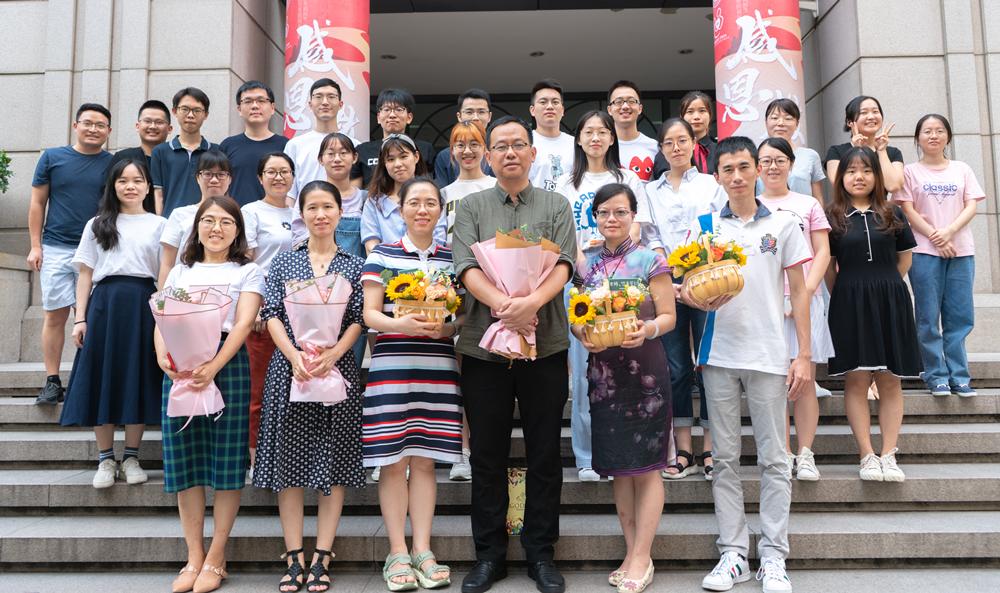
Laboratory of The Blood Stem Cell Metabolism and Immune Regulation

Lab Leader: Junke Zheng
Lab Name: Laboratory of The Blood Stem Cell Metabolism and Immune Regulation
Lab Info:Zheng’s Lab mainly focuses on the studies of the metabolic regulation of hematopoietic stem cells (HSCs) and leukemia stem cells (LSCs) and the identification of the potential immunotherapeutic targets for leukemia treatment. We have made several important findings in the fate determinations of HSCs/LSCs related to intrinsic metabolic pathways or extrinsic niche components. We demonstrated that glucose and amino acid metabolisms play critical roles in the maintenance of HSC or LSC activities, and that bone marrow niche factors (such as ANGTPLs and APOE) sustains HSC or LSC stemness through the immune inhibitory receptor LILRBs. These findings have been published in Nature, Cell Metabolism (cover story), Blood (cover story), JCI and other high-profile journals. We have also applied for several domestic and overseas patents according to these original findings. By using our established unique techniques, including metabolic sensors, bone marrow niche imaging and immunotherapeutic platforms (antibody and CAR-T), we currently aim to: 1) unravel the intrinsic metabolic properties of HSCs/LSCs and their potential connections with bone marrow niches; 2) identify novel targets and potential strategies for the leukemia immunotherapy. These studies will open a new avenue for understanding the underlying mechanisms by which HSCs and LSCs maintain their stemness, and provide some ideal metabolic or immune candidate targets for the treatments of different types of leukemias or solid cancers.
Lab Members:
Name |
Title |
|
Junke Zheng |
Professor |
zhengjunke@shsmu.edu.cn |
Zhuo Yu |
Professor |
yuzhuo78@aliyun.com |
Yaping Zhang |
Associate professor |
yapingzhang1117@126.com |
Chiqi Chen |
Associate professor |
wzmcccq@126.com |
Li Xie |
Lab manager |
xieli100@126.com |
Dang Huang |
Postdoc |
huangdan2848@163.com |
Xiaoxiao He |
Postdoc |
xxhe0702@163.com |
Wenqian Yang |
Postdoc |
yangwenqian1994@126.com |
Lu Chen |
Graduate student |
chenlu1369@163.com |
Yu Jiang |
Graduate student |
jiangyu1995@sjtu.edu.cn |
Sijia Dan |
Graduate student |
dsj0027@sjtu.edu.cn |
Yilu Xu |
Graduate student |
xuyilu@sjtu.edu.cn |
Liyuan Cao |
Graduate student |
caoliyuan@sjtu.edu.cn |
Yamin Yuan |
Graduate student |
yaminyuan@sjtu.edu.cn |
Hanqing Zhao |
Graduate student |
122018000424@ccmu.edu.cn |
Jing Yu |
Graduate student |
13057671920@163.com |
Xingmei Mu |
Graduate student |
15327401057@163.com |
Yiqiu Xia |
Graduate student |
xiayiqiu123@126.com |
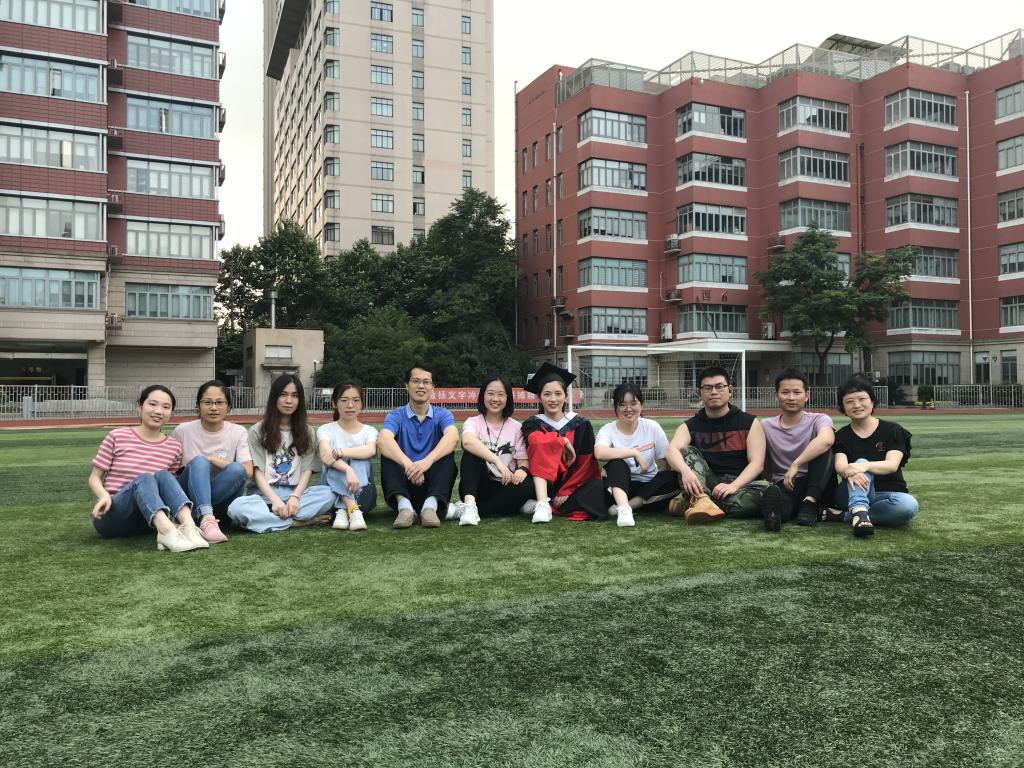
Laboratory of Oxidative Stress Induced Necrosis and Human Diseases

Lab Leader: Jing Zhang
Lab Name: Laboratory of Oxidative Stress Induced Necrosis and Human Diseases
Lab Info:Programmed cell death is crucial for multiple physiological processes of multicellular organisms, and its dysregulation is closely related to a variety of human diseases, such as cancers, neurodegenerative diseases and ischemic diseases. Recent evidence shows that programmed cell death is not only limited to apoptosis, but also necrosic cell death are comprehensively regulated. Therefore, the role and molecular mechanisms of programmed cell death in human diseases and its implications in clinical therapy have always been the focus of our research.
Dr. Jing Zhang's group utilizes biochemistry, molecular and cell biology, model animals, and compound screening to dissect the molecular mechanisms of oxidative stress induced necrotic cell death, and explore its clinical potentials for ischemic diseases and fibrotic diseases. It mainly contains the following aspects:
(1) Post-translational modification in ferroptosis and its effect in liver diseases(Cell Death Differ, 2022);
(2) The role of ferroptosis in cellular metabolism, cancer metastasis, and cancer therapy.
Lab Members:
Name |
Title |
|
Huike Jiao |
Assistant Professor |
Huike.Jiao@shsmu.edu.cn |
Jing Zhang |
Technician |
zhangj@shsmu.edu.cn |
Yan Wu |
Ph.D. candidate |
wuyancqmu@163.com |
Mengna Zheng |
Ph.D. candidate |
zheng_mn@163.com |
Bin Xie |
Master candidate |
xie670826433@163.com |
Xu Gao |
Master candidate |
gaoxu123@sjtu.edu.cn |
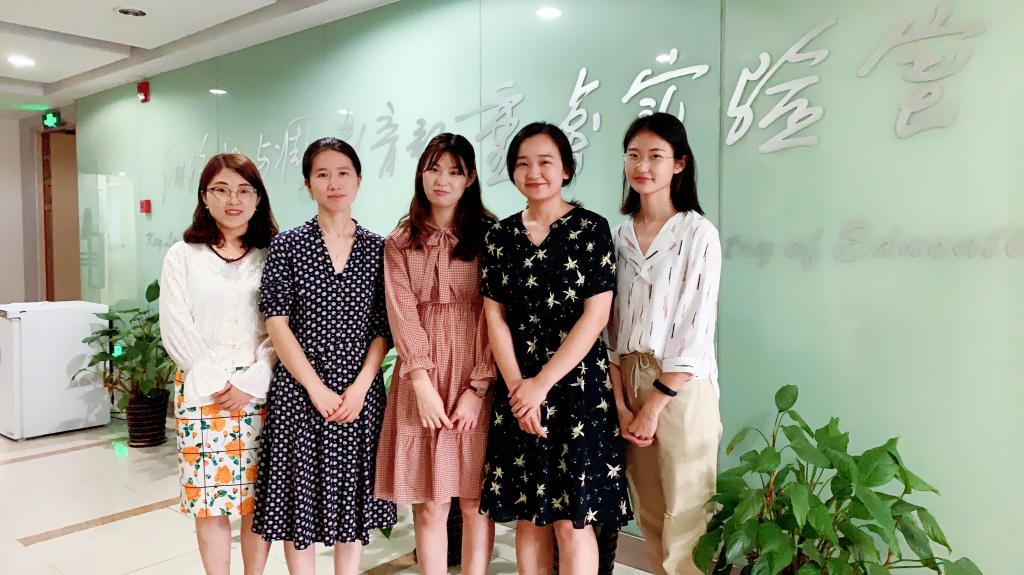
Laboratory of Organelle Stress and Tissue Regeneration

Lab Leader: Bin Guo
Lab Name: Laboratory of Organelle Stress and Tissue Regeneration
Lab nfoI:Our lab is mainly interested in the function and underlying mechanisms of organelle stress in disease occurrence and tissue regeneration. The well-established research systems include mouse and human hematopoietic stem cell maintenance, leukemia stem cell and leukemogenesis. We focus on the following scientific questions: How mitochondrial stress is involved in hematopoietic regeneration and leukemogenesis? What’s the relation between ER stress and cell fate determination of hematopoietic stem cells? Does nucleolus stress response pathway play some role in hematopoietic stem cell homeostasis? Screening for small molecule drugs of human hematopoietic stem cell ex vivo expansion. Our studies will facilitate the development of efficient approaches to treat malignant or non-malignant blood diseases.
Lab Members:
Name |
Title |
|
Bin Guo |
Principal Investigator |
jybinguo@shsmu.edu.cn |
Hui Liu |
Associate Investigator |
u3002399@connect.hku.hk |
Chunxu Yao |
Technician |
yaochunxu@shsmu.edu.cn |
Yandan Chen |
Graduate student |
yandan_chen@126.com |
Linxi Li |
Graduate student |
1834495868@qq.com |
Xuan Gu |
Graduate student |
2359521692@qq.com |
Yu Li |
Graduate student |
liyuwm@126.com |
Jingchao Zhou |
Graduate student |
15651972775@163.com |
Mengmeng Li |
Graduate student |
lmm8741@163.com |
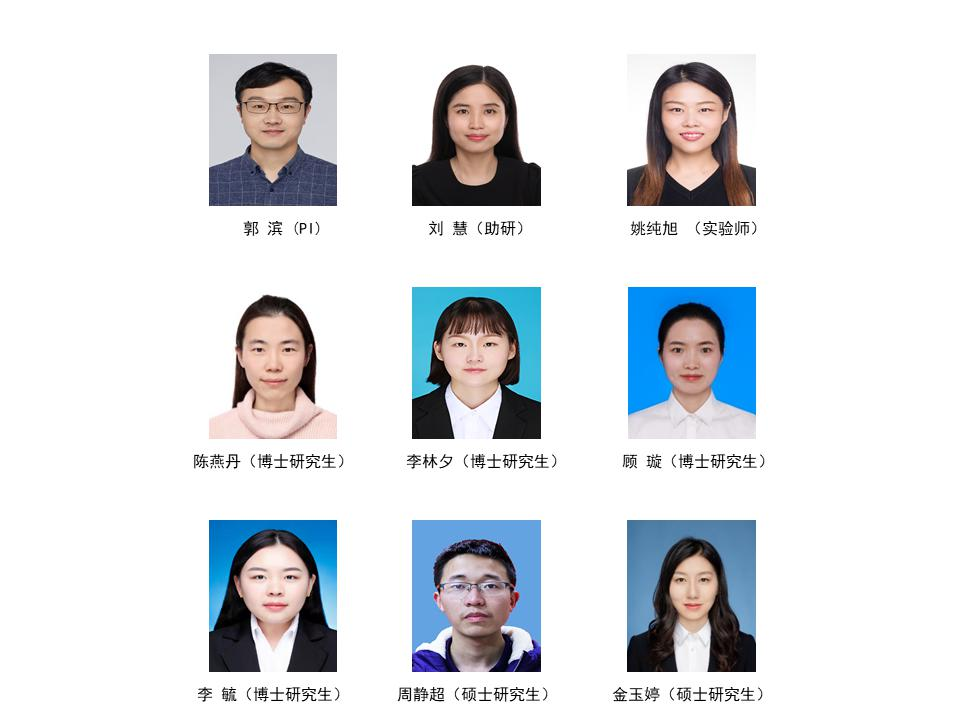
Laboratory of Structural Mechanism of Diseases

Lab Leader: Aiwu Zhou
Lab Name: Laboratory of Structural Mechanism of Diseases
Lab Info:The research group mainly focuses on the structural mechanism of protein complexes related to cardiovascular diseases and tumors immunotherapy. Through biochemical and structural biology techniques including crystallography and cryo-electron microscopy, we aim to reveal the regulatory mechanisms of proteins, explore the relationship between their conformational changes and onset of diseases, and attempt to intervene these conformational changes for disease treatment through rational drug design. Our research group has published about 40 research papers as correspondence or co-corresponding authors in journals such as NATURE (2010, 2019), BLOOD (2009, 2012, 2022), Science Advance (2020) and JBC. Currently, the research group has 1 associate professor, 1 research assistant, 1 postdoctoral fellow, 2 master students and 2 doctoral students.
Lab Members:
Name |
Title |
|
Naiyan Zeng |
Associate Professor |
zengny@shsmu.edu.cn |
Haiyan Cai |
Research assistant Fellow |
hycai@shsmu.edu.cn |
Zimei Shu |
Post-doctor |
15805197619@163.com |
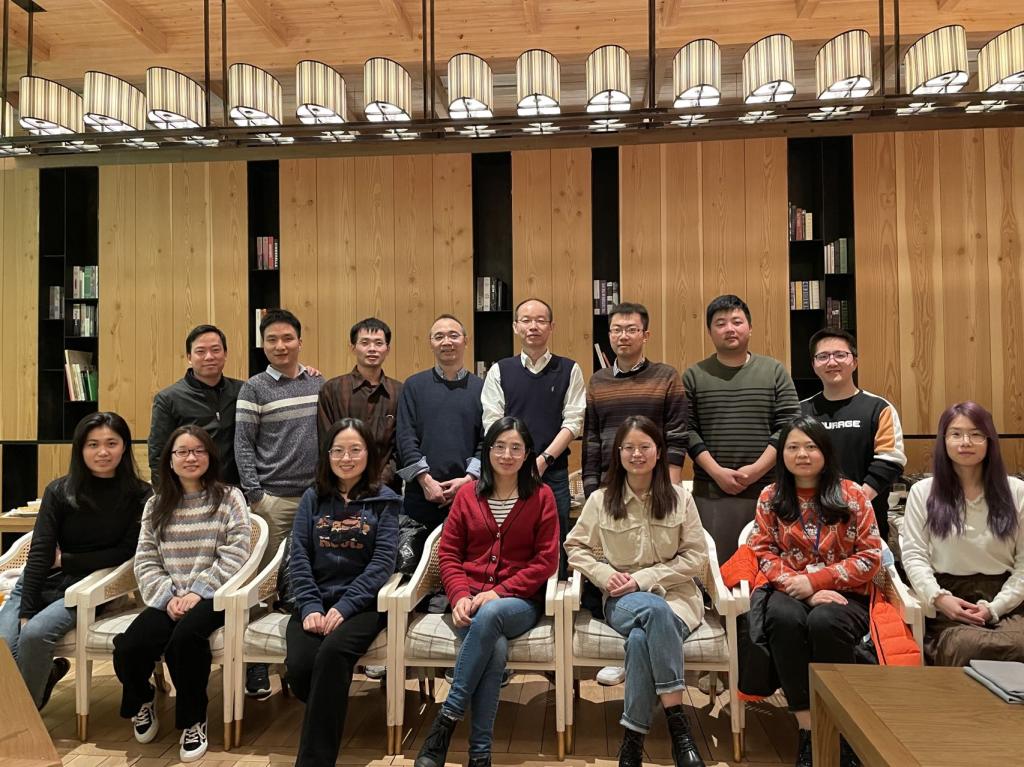
Laboratory of Deubiquitinating Enzymes and Targeted Therapies

Lab Leader: Yingli Wu
Lab Name: Laboratory of Deubiquitinating Enzymes and Targeted Therapies
Lab Info:Deubiquitinating enzymes (DUBs) regulate protein degradation, localization and protein interaction by removing ubiquitination modifications of proteins, thereby participating in various biological processes such as DNA damage repair, cell survival, cell cycle, immune response, and angiogenesis. Accumulating evidence show that DUBs are an emerging class of anti-tumor targets. In recent years, our group has focused on DUBs related studies, mainly including: revealing the role and mechanism of DUBs in tumors; identifying the corresponding DUBs of various important oncoproteins or tumor suppressors; and using DUBs as the target to develop its inhibitors or agonists and envaluate their efficacy in vitro and in vitro. The results have been published in Nature communications, Signal transduction & targeted therapy, Science China Life Sciences and other journals. These studies will provide new mechanisms for the occurrence and development of tumors, and provide new targets and drugs for the treatment of tumors.
Lab Members:
Name |
Title |
|
HU Lei |
Senior Research Assistant |
hulei@shsmu.edu.cn |
Hanzhang Xu |
Associate professor |
smollyxu@126.com |
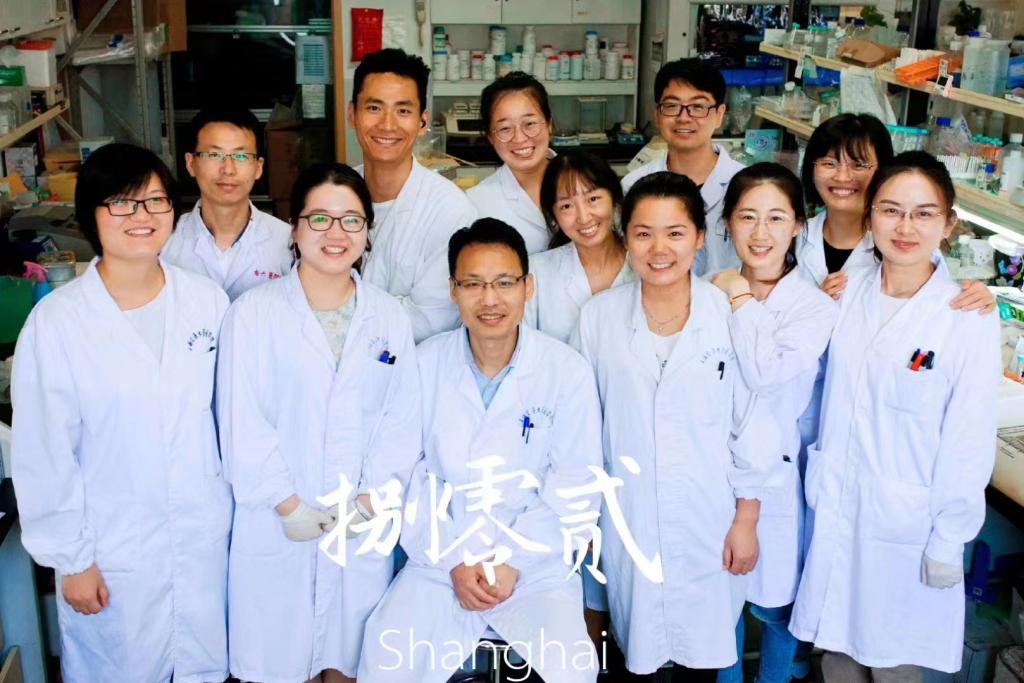
Laboratory of Cytoskeleton and Diseases

Lab Leader: Muqing Cao
Lab Name: Laboratory of Cytoskeleton and Diseases
Lab Info:The cytoskeleton and related organelles have extensive roles in a multitude of biological processes, including cell morphology maintenance, signaling, cell division and differentiation, homeostasis maintenance, and organ development. Disorders of the cytoskeleton are tightly associated with the development of multiple diseases including cancer, congenital developmental defects, and neurodegenerative diseases. We focus on the fundamental regulatory mechanisms of the cytoskeleton and are interested in the underlying mechanisms of related diseases. We have achieved a series of progresses in the field of scale sensing and size control of cytoskeleton-related organelle, ultrastructural assembly of cellular organelles, and the connection between human diseases and defects of cytoskeleton-related organelles. Our work have been published in high profile academic journals such as Genetics in medicine, eLife, PNAS and Current biology.
Lab Members:
Name |
Title |
|
Xiujuan Zhang |
Assistant Professor |
zhangxj123@situ.edu.cn |
Ruida He |
Research Assistant |
heruida0526@shsmu.edu.cn |
Zaisheng Lin |
Ph.D. Student |
linzaishenga@163.com |
Xinlong Kong |
Master Student |
326061426@qq.com |
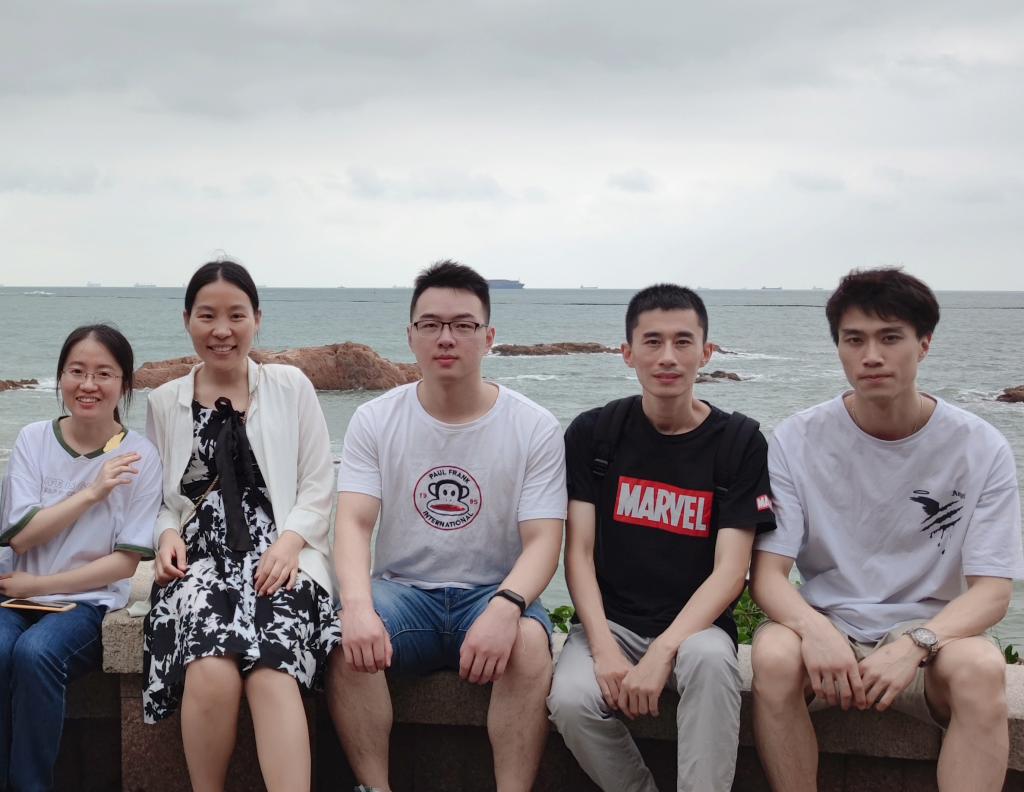
Laboratory of Bacterial Infections and Host Innate Immunity

Lab Leader: Xu Yue
Lab Name: Laboratory of Bacterial Infections and Host Innate Immunity
Lab Info:Our lab was established in early 2021 and mainly focuses on the mechanisms of pathogenic bacterial infection and host innate immune recognition. Mining from the pathogen side, our lab is devoted to identifying and analyzing the biochemical activities of bacterial effectors secreted into host cells during the infection process. This helps to elucidate the pathogenic mechanism of bacteria and provides an excellent entry point and novel tool for studying eukaryotic cell signaling pathways. From the side of eukaryotic cells, our lab combines biochemistry, genetic screening, and cell biology to identify and study host signaling pathways defending bacterial infection. And continue to explore the biological function of the novel non-canonical autophagy pathway (VAIL) based on our previous research. Relevant works have been published in international academic journals such as Cell, Nature Structural & Molecular Biology, Autophagy, mBio, etc.
Lab Members:
Name |
Title |
|
Dandan Yang |
Technician/ lab manager |
184482@shsmu.edu.cn |
Yuanyuan Hang |
Student |
2690589815@qq.com |
Yue Shao |
Student |
shaoyue1025@sina.com |
Tianye Niu |
Student |
121710910018@sjtu.edu.cn |
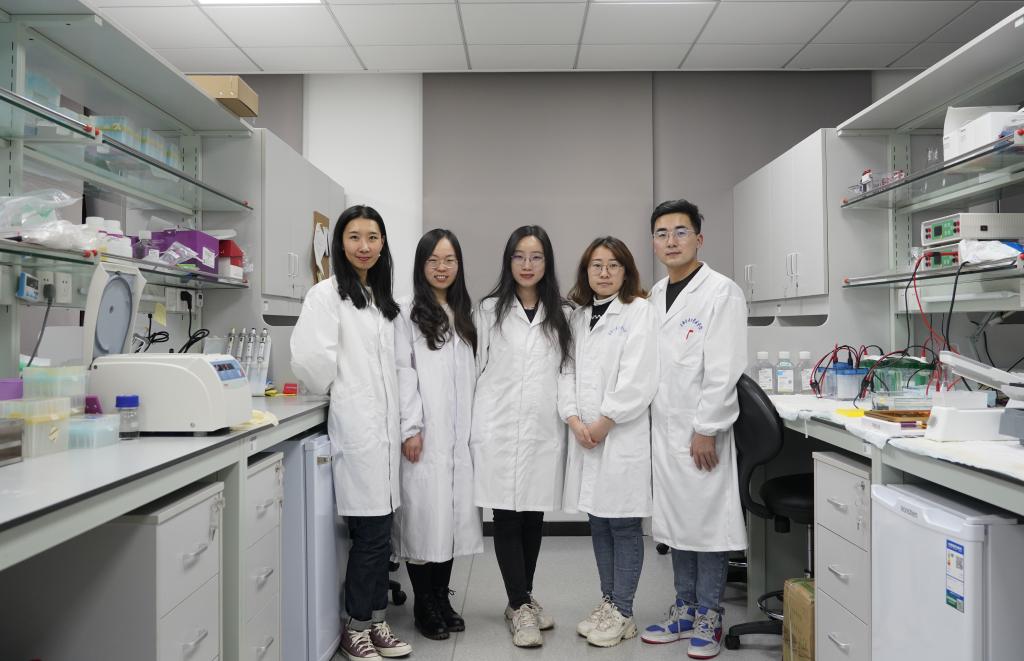
Laboratory of RNA and Tumor Cell Fate Determination

Lab Leader: Qian Zhao
Lab Name: Laboratory of RNA and Tumor Cell Fate Determination
Lab Info:Our lab mainly focuses on the important scientific issue of "RNA and tumor cell fate determination". Combining multiple approaches including molecular and cellular biology, biochemistry, mouse reverse genetics and state-of-art omics techniques, our research focuses on the following areas: (1) Abnormal expression of long non-coding RNA (lncRNA) in tumor metastasis as well as its function and molecular mechanism; (2) Abnormal expressive regulation of lncRNA in tumor microenvironments such as hypoxia; (3) The function and molecular mechanism of m1A RNA epigenetic modification in the evolution of liver cancer. The members of the lab have published more than 50 SCI papers in international academic journals such as Blood, Cell Death Differ, Cell Discovery and other journals. The achievements won the second prize of the National Natural Science Award; the first prize of the Chinese Medical Science and Technology Award; the first prize of the Shanghai Natural Science Award and other awards.
Lab Members:
Name |
Title |
|
Zhou Cixiang |
Senior lab master |
zhoucx@shsmu.edu.cn |
Wo Lulu |
Postdoctor |
wolulu1991@163.com |
Li Jingchi |
Ph.D. Candidate |
1227473972@qq.com |
Zhang Xin |
Ph.D. Candidate |
934399072@qq.com |
Wang Jiao |
Ph.D. Candidate |
wangjulie95@163.com |
Hu Zhexuan |
Graduate student |
okaydokay@yeah.net |
Liu Chang |
Graduate student |
490770620@qq.com |
Li Shuchun |
Ph.D. Candidate (Ruijin Hospital) |
lsc2009@hotmail.com |
Chen Weiwei |
Ph.D. Candidate (Shanghai No.1 peoples hospital) |
394984317@qq.com |
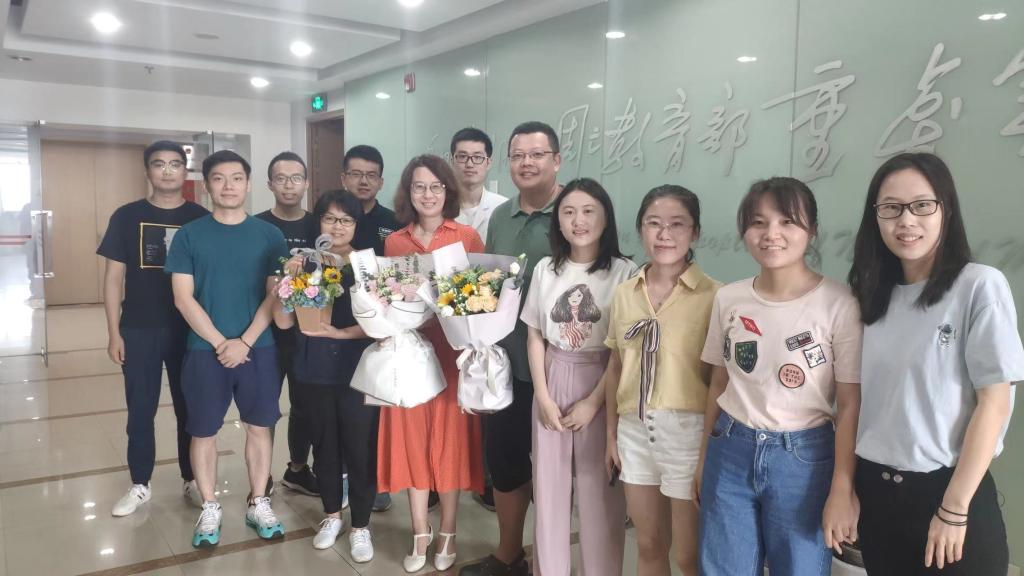
Laboratory of Molecular Design

Lab Leader: Jian Zhang
Lab Name: Laboratory of Molecular Design
Lab Info:The Molecular Design Lab was built in September 2009 at the Key Laboratory of Cell Differentiation and Apoptosis of Chinese Ministry of Education, Shanghai JiaoTong University School of Medicine. Our research interests focus on drug discovery using the combination of drug design, bioinformatics, medicinal chemistry and chemical biology methods. Specially, we developed a series of allosteric methods including recognition of allosteric target, identification of allosteric site and allosteric drug screening to overcome potential selectivity and toxicity in the drug discovery. Inspired by the advantage of the methods, novel allosteric activators/inhibitors were discovered in several drug targets and used to address the challenges of finely-tuned biological regulation and human disorder treatment and medicine.
Lab Members:
Name |
Title |
|
Shaoyong Lu |
Professor |
lushaoyong@yeah.net |
Xiuyan yang |
Associate Professor |
yang-xyzz@hotmail.com |
Xinyi Liu |
Advanced technician |
coolist_liu@126.com |
Yingyi Chen |
Technician |
chen_yy@sjtu.edu.cn |
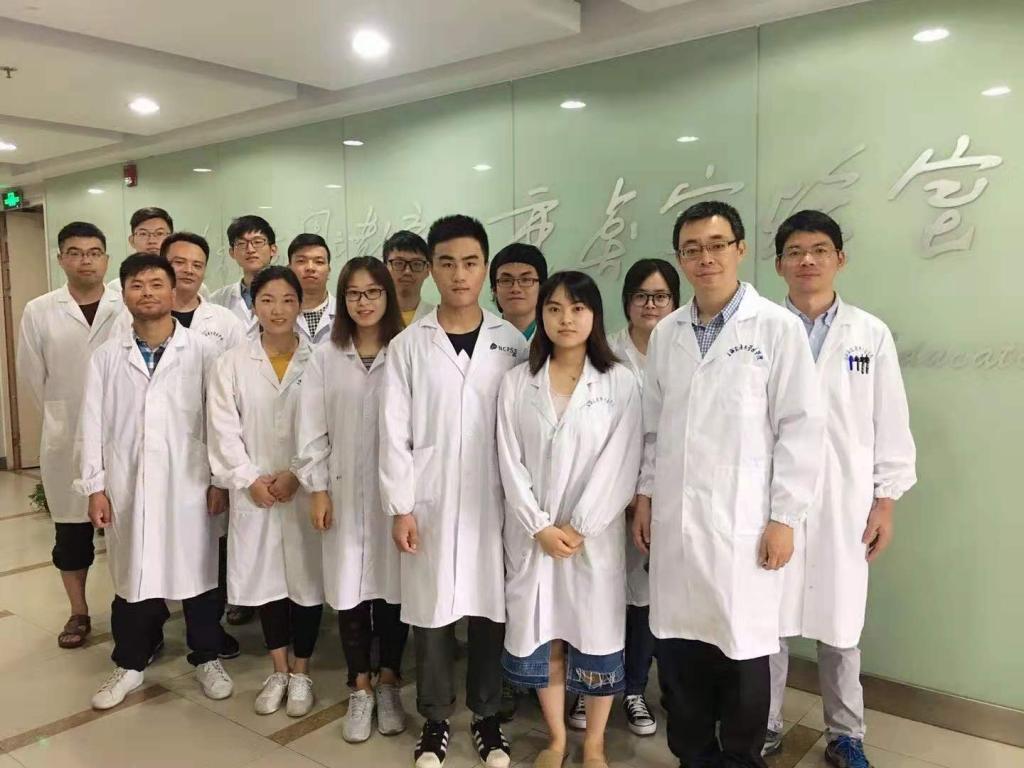
Laboratory of Medical Stem Cell Research (Lab-MSCR)

Lab Leader: Dengli Hong
Lab Name: Laboratory of Medical Stem Cell Research (Lab-MSCR)
Lab Info:Laboratory of Medical Stem Cell Research (Lab-MSCR) was established in 2009. The head of Lab-MSCR is Dengli Hong, PI & Distinguished Professor. Lab-MSCR has undertaken the State Key Program of National Natural Science Foundation of China, the Projects of International Cooperation and Exchanges NSFC, the Key Project of Chinese National Programs for Fundamental Research and Development (973 Program). Main research directions: 1. Initiation and evolution of leukemic stem cells and their niches. 2. Function and genome instability of hematopoietic stem cell in physiological and abnormal niches. The members of LAB-MSCR have published in Science, Cancer Cell, Blood and Leukemia. First identification of pre-leukemia stem cells (Hong D, et al. Science 2008), demonstrating the origin of childhood leukemias. The discovery and its scientific significance were reported by other journals such as Nature. Recently, we found that leukemia-propagating cells (LPCs) build a protective niche in the BM to evade therapy (Duan C, et al. Cancer Cell 2014). The niche is called therapy-induced niche (TI-niche). Nature, Cancer Discovery and other journals published special report. This achievement won the first prize of Shanghai Natural Science Award 2017.
Lab Members:
Name |
Title |
|
Xiaolin Guo |
Assistant researcher |
guoxiaaolin2008@sjtu.edu.cn |
Jiejing Cai |
Assistant experimenter |
jjcai@sjtu.edu.cn |
Lili Mu |
Postdoc |
lilimu2013@sjtu.edu.cn |
Shuiping Li |
PhD student |
lspsjtu@sjtu.edu.cn |
Junxia Ma |
PhD student |
majx1992@sjtu.edu.cn |
Yiding Wang |
PhD student |
wangyiding@sjtu.edu.cn |
Ye Hu |
PhD student |
yehoo55@sjtu.edu.cn |
Wanying Wu |
PhD student |
wuwanying@sjtu.edu.cn |
Yanjun Liu |
PhD student |
wuwanying@sjtu.edu.cn |
Xi Wang |
PhD student |
wx970204@sjtu.edu.cn |
Hongyu Xie |
PhD student |
mactube@sjtu.edu.cn |
Xinguang Gao |
PhD student |
silencio@sjtu.edu.cn |
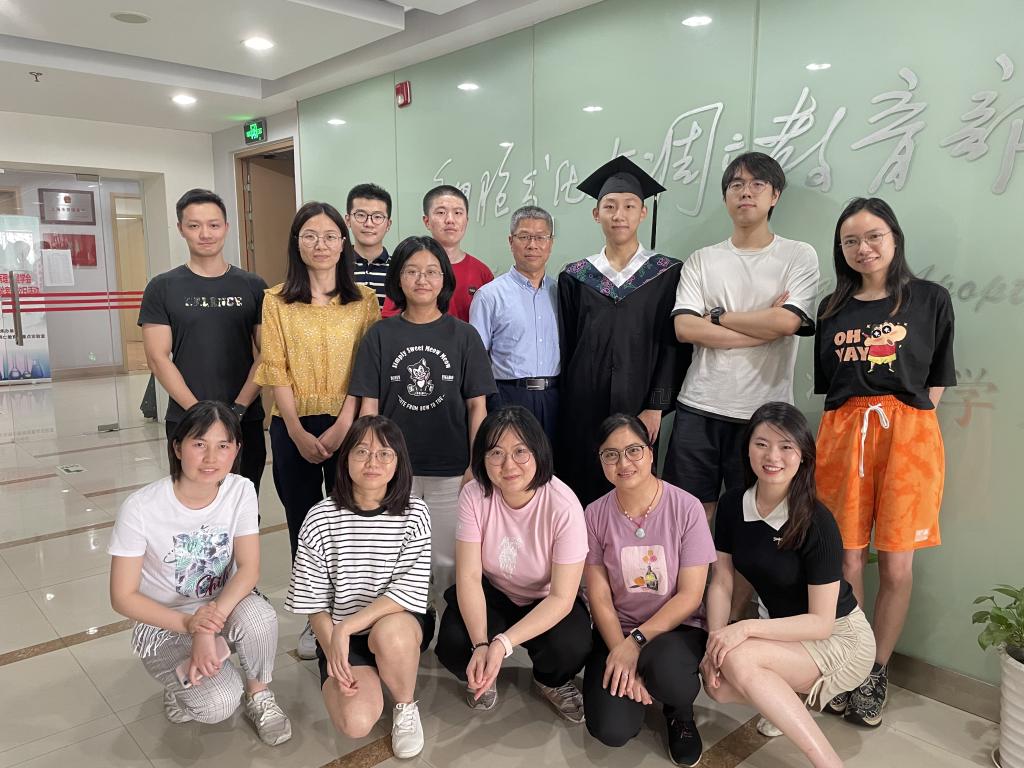
Laboratory of Regulatory Networks of the Hematopoietic and Immune Systems

Lab Leader: Dachuan Zhang
Lab Name: Laboratory of Regulatory Networks of the Hematopoietic and Immune Systems
Lab Info:Our lab is dedicated to investigation of the regulatory networks for hematopoietic stem cells and innate immune cells, and the key roles of the microbiota and peripheral nervous system in homeostasis and pathophysiology. Our previous studies have found that the microbiota plays important roles in regulating neutrophil functional activity, inflammatory disease progression, and hematopoietic stem cell fate decision. In addition, the peripheral nervous system plays key roles in regulating hematopoietic stem cell mobilization, homing, and the microenvironment. Our lab is supported by NSFC funding, and previous studies have been published in top journals including Nature, Cell Stem Cell, and Blood. Our research directions include: (1) The roles of microbiota and microenvironment in regulating hematopoietic stem cell and leukemia pathogenesis; (2) Isolation, manipulation, and application of gut commensals in hematopoietic and inflammatory diseases; (3) The roles of peripheral nervous system in the homeostasis, migration and activation of hematopoietic stem cell and innate immune cells.
Lab Members:
 The Zhang lab is affiliated with the Key Laboratory of Cell Differentiation and Apoptosis of National Ministry of Education, which provides a first-class research platform and superb cross-disciplinary environment. We are now actively recruiting Research Associate and Postdoctoral Fellows. The candidates with genuine interest and enthusiasm for our scientific directions are welcome to apply!
The Zhang lab is affiliated with the Key Laboratory of Cell Differentiation and Apoptosis of National Ministry of Education, which provides a first-class research platform and superb cross-disciplinary environment. We are now actively recruiting Research Associate and Postdoctoral Fellows. The candidates with genuine interest and enthusiasm for our scientific directions are welcome to apply!
Laboratory of Aberrant Protein Modification and Cancer

Lab Leader: Shao-Ming Shen
Lab Name: Laboratory of Aberrant Protein Modification and Cancer
Lab Info:Our laboratory mainly focuses on deciphering the role of aberrant protein post-translational modifications (PTMs) in the development and progress of cancer. Especially, we have made a series of findings to reveal that differentially localized PTEN and different PTEN translational variants are subjected to specific PTMs to play distinct and even opposite roles in the development and progress of cancer (EMBO Rep, 2015; Nature Commun, 2018; Nature Cell Biol, 2019; Nature Commun, 2020).
Lab Members:
Name |
Title |
|
Meng-Kai Ge |
Postdoc |
gemengk@126.com |
Shuai Wu |
Research assistant |
wushuai15536049577@163.com |
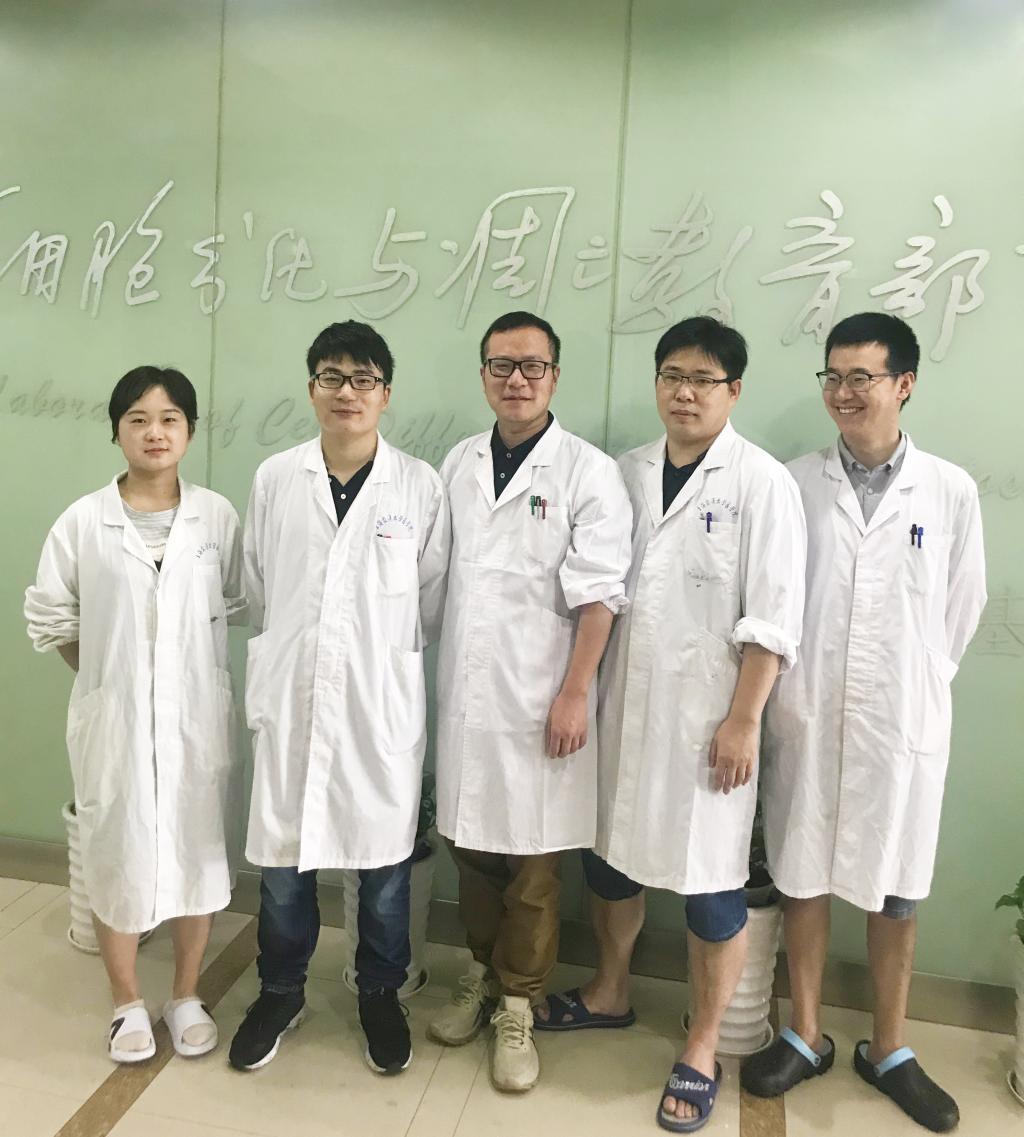
Laboratory of Metabolism and Aging Research

Lab Leader: Ming He
Lab Name: Laboratory of Metabolism and Aging Research
Lab Info:Research Interests: The research group mainly focuses on the role of protein modification in aging, liver metabolic diseases and tumorigenesis. Our research interests include: Mechanism in which glucose and lipid metabolic remodeling determines the fate of different hepatic cells and its pathophysiological role in ALD, NAFLD and HCC; Mechanism of inter-organ communication during aging and metabolic remodeling; Research and development the corresponding biomarker and targeted therapies.
Lab Members:
Name |
Title |
|
Ming He |
Professor |
heming@shsmu.edu.cn |
Wei He |
Master Candidate |
|
Yongjiao Huang |
Master Candidate |
|
Zhihui Zou |
Doctor Candidate |
